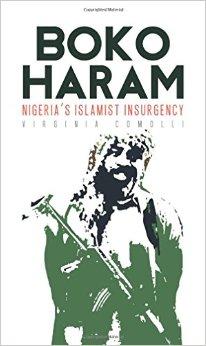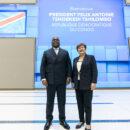Darfur: A Critical Reader
Darfur and the Crisis of Governance in Sudan: A Critical Reader, edited by Salah Hassan and Carina Ray, is a compendium of articles by leading social scientists on the Darfur crisis, including extensive appendices of original documents such as the Qoreish letters, the SLM and JEM manifestos and a translation of the first part of the Black Book. It is an essential scholarly resource for this teaching about Darfur.

The conflict in Darfur has received unprecedented attention from the international media and human rights organizations, and it has captured the attention of millions of people around the world. Those seeking to learn about the conflict, as well as those who have reported on it, often rely on information produced by the various organizations that are addressing the humanitarian crises spawned by the conflict. In turn, most coverage of the Darfur crisis provides only a cursory understanding of the historical, economic, political, sociological, and environmental factors that contribute to the conflict. Moreover, the perspectives of the people of Darfur and the Sudan have not been adequately heard. As a result, Sudanese civil society’s active engagement in resolving the country’s problems goes unrecognized.
Darfur and the Crisis of Governance in Sudan remedies this situation by bringing together a diverse group of contributors from Sudan and beyond””scholars, activists, NGO and aid workers, members of government and the Darfurian rebel movements, and artists””who share a deep knowledge of the situation in Darfur and Sudan. Together, they provide the most comprehensive, balanced, and nuanced account yet published of the conflict’s roots and the contemporary realities that shape the experiences of those living in the region. The cross-disciplinary dialogue fostered by Salah M. Hassan and Carina E. Ray yields a comprehensive understanding of the causes, manifestations, and implications of the ongoing conflict. Many of the contributors emphasize that despite the international attention Darfur has received, it is those within Darfur and Sudan””both in preexisting organizations and in newly formed alliances””who have taken the lead in seeking local solutions.
This book features a portfolio of affecting full-color photographs of daily life in Darfur by the acclaimed photographer Issam A. Abdelhafiez and, significantly, an extensive appendix of official local and international documents about the conflict””laws, decrees, resolutions, reports, and governmental statements””that have shaped both the crisis and its global perception. Collected here for the first time, these documents are invaluable as primary sources for researchers, students, activists, NGOs, and anyone else trying to understand the complexities of the crisis.
Contributors include: Issam A. Abdel Hafiez; Musa Adam Abdul-Jalil; Abaker Mohamed Abuelbashar; Rogaia Mustafa Abusharaf; Eric Kofi Acree; Ali B. Ali Dinar; Munzoul A.M. Assal; Alex de Waal; Atta El-Battahani; Kamal El-Gizouli; Abdel Monim Elgak; Abdullahi Osman El-Tom; Grant Farred; Adrienne Fricke; Fahima A. Hashim; Salah M. Hassan; Amira Khair; Mansour Khalid; Mahmood Mamdani; Carina E. Ray; Karin Willemse; Benaiah Yongo-Bure; Al-Tayib Zain Al-Abdin.






